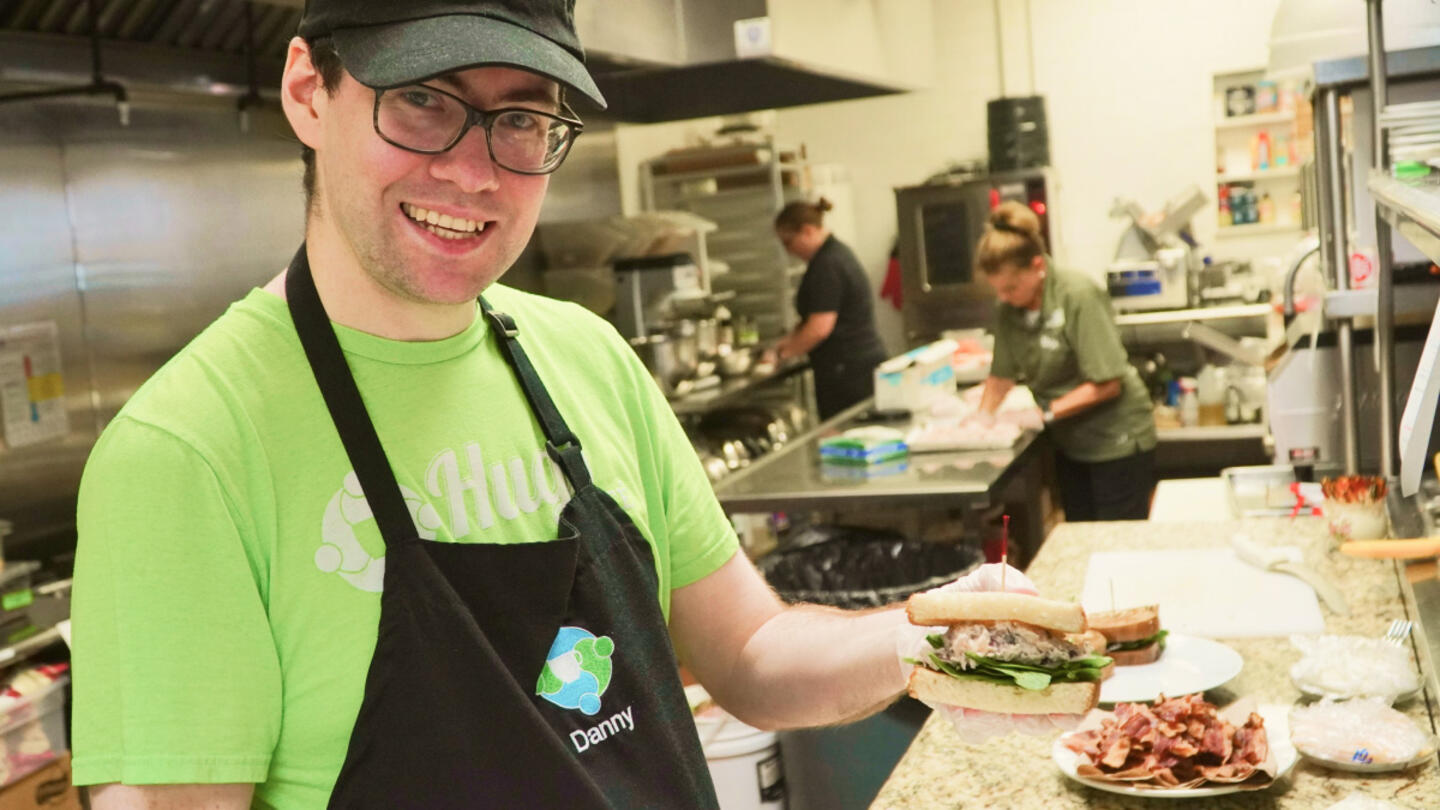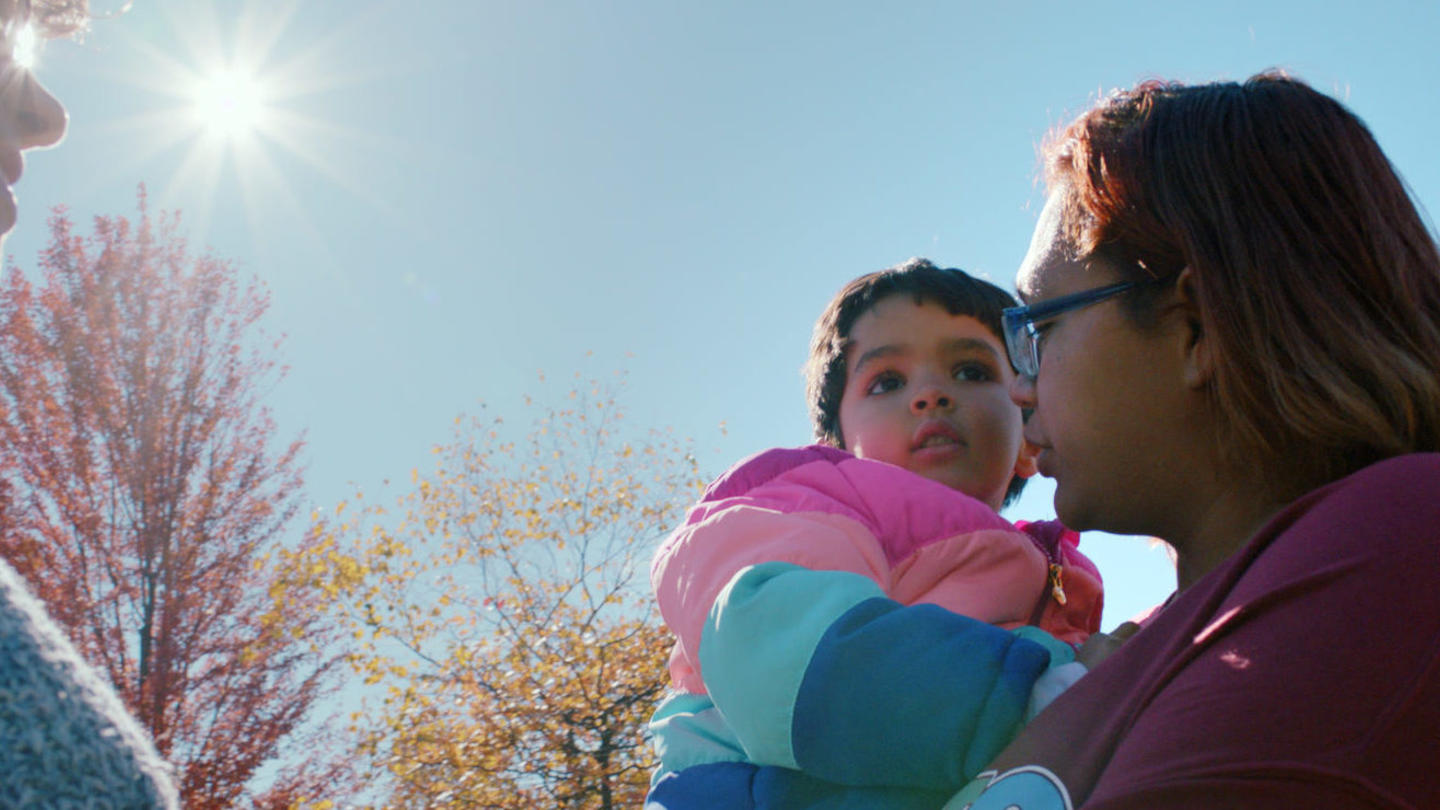The premise of foster care is simple: protect children from abuse and neglect by placing them in a safe, stable environment. But many children who enter into the foster care system come from loving homes with parents who are facing crises, like unemployment or health challenges, and need help caring for their children. The result is a system that often separates loving parents from their children and fails to address the root causes that push families to the edge in the first place.
On any given day, more than 400,000 children are in foster care in the United States, and cases of neglect account for about 70 percent. Research shows that most of these cases involve parents who want nothing more than to raise their children to be healthy and happy. But they face serious obstacles — like unemployment, homelessness, or medical emergencies — without a social or familial support system. The challenges stack up, and they're left unable to provide for their children alone. And once children enter foster care, there's only a 50 percent chance they'll ever be reunited with their parents.
Safe Families for Children has fought to keep tens of thousands of families from reaching that edge. Dr. Dave Anderson, Safe Families' founder, believes that neglect is a symptom of poverty, coupled with social isolation. In response, Safe Families mobilizes volunteers who act like an extended family, providing the level of support parents need to get back on their feet and ensure their children are cared for. In the process, they build lifelong relationships that help families flourish over time.
"It's really all about relationships," Dave says. "If they're in their situation because of social isolation, they need relationships that continue after kids are returned home."
Since 2019, Stand Together Foundation, part of the Stand Together community, has partnered with Safe Families to meet that demand, providing business coaching, financial investments, social capital, and communications strategies to scale its model. Now Safe Families is aiming even higher; it plans to build a community of one million host families over the next three years. Stand Together Foundation recently made a $2 million investment in Safe Families to support its expansion in Florida. The two organizations will work together to target other high-need regions with large foster care populations, including Houston, Los Angeles, and New York City.
The Safe Families approach is simple but powerful. Since its start, Safe Families has placed 38,000 children in stable, temporary homes for an average stay of 45 days. Ninety-five percent of those children have been reunited with their families.
Sign up for the Strong & Safe Communities newsletter for stories, ideas, and advice from changemakers working with their neighbors to address the biggest problems we face.
Safe Families' success is powered by its volunteer community, which includes more than 25,000 people across the country. Danielle Patelis is one of them. She's a young professional in the Chicago area who discovered Safe Families when she was looking for ways to help foster kids. She was impressed by the organization's focus on prevention and encouraged by the variety of ways volunteers could support families.
"I hadn't even really considered that a single person or single people together could foster," she says. "It was everything that I had been praying about and looking for."
Danielle discussed the opportunity with her four roommates, and they decided last summer to sign up as hosts. Twenty-four hours after completing the vetting and approval process, they were matched with Nellye Rojas, a single mother of two young daughters, Chloe and Christina.
Nellye was battling a variety of mental health challenges that stemmed from her abusive childhood and a recent miscarriage. She was estranged from her family and had few social connections. The combination of work, parenting, and grief led her to consider suicide. Then a coworker called the Illinois Department of Children and Family Services, and she was at risk of losing custody of her children, too. Nellye desperately wanted to give her children a better life, but she didn't have a community to turn to for help or support.
When she had nowhere else to turn, her therapist recommended Safe Families. Nellye was first matched with a couple named Dolores and Mark, who watched her daughters while she worked. Then she was connected with Danielle and her roommates for longer-term support. They've hosted Chloe and Christina for months at a time, providing a safe and welcoming place to stay. While hosting the kids and providing to day-to-day care, the roommates throw birthday parties, work with the children on creative projects, and take them on field trips around the area.
"My kids love it over there," Nellye said. "They've been homeschooling them and my kids are happy."
Most importantly, while she has more flexibility to go to work and heal from her own trauma, Nellye hasn't been separated from her daughters. She visits Danielle's home and spends time with her children as often as she can. Instead of losing her family completely, Nellye's family has grown.
"We've all become their aunts, and that's going to be something that lasts for a lifetime," says Danielle.
Dave wants to create more stories like Danielle and Nellye's. After all, Safe Families has proven that friendships like theirs are exceptionally effective at preventing family separation. In Illinois alone, Safe Families has helped reduce the number of children entering foster care from 52,000 to 15,000.
Nationwide, the need has never been greater. Rates of neglect have risen by 25 percent over the past 13 years, and the COVID-19 pandemic has led to an even greater demand for Safe Families' services.
As Safe Families grows, Dave doesn't see it replacing foster care altogether, but instead being a preventative measure before kids are placed in foster care, providing an alternative for families who just need an extra support system. "We could focus on all the kids that don't really need to be in foster care so the system can only care for those that really do."
Watch this video to learn more about Safe Families and how it's changed both Nellye and Danielle's lives.
***
Safe Families for Children is supported by Stand Together Foundation, which partners with the nation’s most transformative nonprofits to break the cycle of poverty.
Learn more about Stand Together’s efforts to build strong and safe communities and explore ways you can partner with us.

People with disabilities want meaningful work — and Hugs Cafe is making it happen.

At this ‘resort,’ children with intellectual disabilities are seen as gifts to be celebrated and loved.

Veterans experience loss when leaving service. Could this be key to understanding their mental health?

The Grammy-nominated artist is highlighting the stories we don’t get to hear every day.
